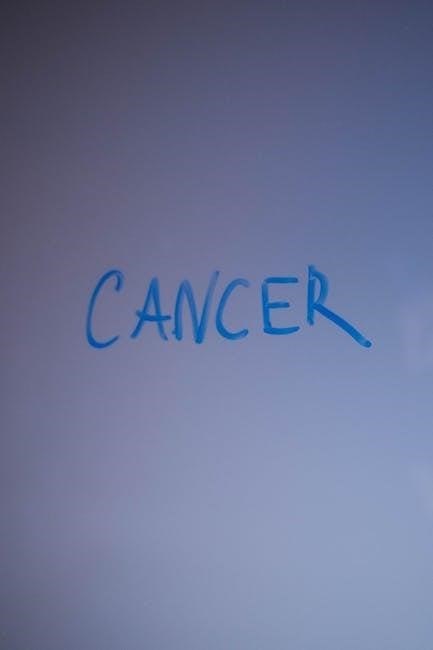The Serious Health Condition Form is a crucial document for Colorado employees seeking leave due to medical reasons. It ensures eligibility for benefits under FMLA and FAMLI.
This form provides a structured process for healthcare providers to certify serious health conditions, ensuring compliance with legal requirements and protecting employee rights.
Overview of the Serious Health Condition Form
The Serious Health Condition Form is a legal document used to certify medical conditions for leave requests under the Family and Medical Leave Act (FMLA) and Colorado’s Paid Family and Medical Leave Insurance (FAMLI) program. It is designed to provide detailed information about an employee’s or family member’s health condition, ensuring eligibility for benefits. The form includes sections for patient information, healthcare provider details, medical certification, and signatures. It is essential for verifying the legitimacy of medical leave requests and ensuring compliance with state and federal regulations. Proper completion and submission are critical for accessing benefits.
Importance of Understanding the Form
Understanding the Serious Health Condition Form is crucial for employees and healthcare providers to ensure proper documentation and compliance with FMLA and FAMLI regulations. It verifies eligibility for medical leave benefits, protecting both the employee’s rights and the employer’s obligations. The form outlines the necessary medical details, ensuring clarity and accuracy in the certification process. Proper comprehension prevents delays and ensures seamless approval of benefits. It also helps healthcare providers understand their role in providing accurate and complete information. This knowledge is essential for maintaining compliance with state and federal laws governing medical leave.

Definition of a Serious Health Condition
A serious health condition is defined as an illness, injury, impairment, or physical/mental condition requiring inpatient care or continuing treatment by a healthcare provider, as per FMLA guidelines.
Inpatient Care Requirements
A serious health condition requiring inpatient care involves an overnight stay in a hospital, hospice, or residential medical facility. This includes any period of care before or after surgery, or intensive treatment. The FMLA defines inpatient care as a minimum of one night in a medical facility, ensuring the condition is severe enough to warrant extended medical intervention. Documentation from the healthcare provider must specify the duration of the stay and the nature of treatment received, confirming its necessity for the patient’s recovery or management of the condition.
Continuing Treatment by a Healthcare Provider
Continuing treatment by a healthcare provider is essential for establishing a serious health condition under Colorado’s FMLA and FAMLI regulations. This involves ongoing medical care, such as office visits, therapy sessions, or medication management, which must be documented by the provider. The treatment must be consistent and necessary to manage the condition effectively, ensuring the patient’s health and well-being. This requirement emphasizes the need for active and regular medical supervision, confirming the condition’s severity and the patient’s inability to perform job duties without adequate care.

Obtaining the Serious Health Condition Form
The form can be easily accessed online through official Colorado state websites and resources, ensuring convenient availability for employees and healthcare providers.
Download the PDF version directly from Colorado’s Department of Human Resources or related portals, allowing for quick access and printing without additional costs.
Where to Find the Form
The Serious Health Condition Form can be easily accessed through Colorado’s official state websites, such as the Colorado Department of Human Resources (DHR) or the Family and Medical Leave Act (FMLA) resources.
Visit the Colorado state government portal or the FMLA website to download the PDF version directly. Additionally, resources like TemplateRoller and other trusted legal document platforms provide accessible versions of the form.
Employees can also find the form through their employer’s HR department or by contacting Colorado’s Paid Family and Medical Leave Insurance program for guidance.
Downloading the PDF Version
The Serious Health Condition Form is readily available for download as a PDF from Colorado’s official state websites, including the Department of Human Resources (DHR) and Family and Medical Leave Act (FMLA) resources.
Visit the Colorado government portal or trusted platforms like TemplateRoller to access the fillable PDF version. Ensure your device has a PDF reader installed to open and complete the form. After downloading, save it securely for easy access and submission.
Print or fill it digitally, depending on your preference, and ensure all sections are completed accurately before submission to the relevant authorities.

Completing the Serious Health Condition Form
The form requires detailed information, including patient history, treatment details, and healthcare provider certification. Ensure all sections are filled accurately to avoid delays in processing.
Section 1: Patient Information
Section 1 requires essential details about the patient, including their full name, date of birth, and contact information. If the form is for a family member, their relationship to the patient must be specified. Accurate and complete information is crucial to avoid delays in processing. This section ensures the healthcare provider can verify the patient’s identity and medical history. Proper completion of this section is the first step in validating the serious health condition claim under Colorado’s FAMLI program. Ensure all fields are filled out clearly and correctly to meet eligibility requirements.
Section 2: Healthcare Provider Details
This section requires detailed information about the healthcare provider treating the patient. It includes the provider’s full name, medical specialty, contact information, and professional credentials. The provider must be licensed to practice in Colorado and qualified to diagnose and treat the condition. Accurate completion of this section ensures the certification is valid and meets FMLA and FAMLI requirements; The provider’s signature and date are also mandatory, confirming their authority to certify the serious health condition. This step is critical for verifying the legitimacy of the medical claim and ensuring compliance with regulatory standards.
Section 3: Medical Certification
In this section, the healthcare provider must certify the nature, severity, and duration of the serious health condition. They will detail whether the condition involves inpatient care or ongoing treatment. The provider must also specify the start date of the condition, the patient’s functional limitations, and the expected recovery time. This section is critical for verifying eligibility for leave and benefits under FMLA and Colorado’s FAMLI program. The provider’s professional opinion is essential to confirm the validity of the medical claim and ensure compliance with legal requirements. Accurate and detailed information is required to prevent delays or rejections.
Section 4: Signature and Date
This section requires the healthcare provider to sign and date the form, confirming the accuracy of the information provided. The provider must include their name, contact details, and professional credentials. The signature serves as a legal affirmation of the patient’s condition and the details outlined in the certification. It ensures the form’s authenticity and validity for processing leave requests under Colorado’s FAMLI program or FMLA. The date is crucial for verifying timelines and compliance with regulatory requirements. A missing or incomplete signature can delay approval, emphasizing the importance of this final step.

Submitting the Form
The completed form must be submitted to the appropriate authority, such as the employer or Colorado FAMLI program, adhering to specified deadlines. Ensure timely submission to avoid delays in processing your leave request. Verify that all sections are filled out correctly before submitting, as incomplete forms may require resubmission. Submission methods may include online portals, email, or mail, depending on the organization’s requirements. Always retain a copy for personal records.
Who Can Submit the Form
The form can be submitted by the employee, a family member, or a designated representative. Employees must ensure the form is completed accurately and signed by their healthcare provider. Family members or representatives may assist in submitting the form on behalf of the employee, provided they have the necessary authorization. The healthcare provider is responsible for certifying the serious health condition, while the employee or their representative handles the submission process. Ensure all required sections are filled out correctly to avoid delays. Submission is typically done through the employer or Colorado’s FAMLI program, depending on the leave type.
Submission Process and Deadlines
The completed form must be submitted to the employer or Colorado’s FAMLI program, depending on the type of leave requested. Employees should ensure the form is submitted within the required timeframe, typically 15 days for FAMLI benefits and 30 days for FMLA. Late submissions may result in delayed or denied benefits. Employers or program administrators may request additional information or clarification, so it’s essential to provide complete and accurate details. Deadlines vary, so check specific program requirements to avoid missing them. Timely submission ensures uninterrupted benefits and compliance with state and federal regulations.
Verification and Approval Process
The form undergoes a thorough review to ensure all sections are complete and accurate. Follow-ups with the healthcare provider may be required for additional clarification or documentation.
Reviewing the Form for Completeness
Reviewing the Serious Health Condition Form for completeness is essential to ensure all required sections are filled out accurately. This includes verifying patient information, healthcare provider details, medical certification, and signatures. Incomplete forms may result in delays or denial of benefits. Employees should ensure all fields are filled out legibly and thoroughly, avoiding any missing or unclear information. The form must be reviewed carefully to confirm that all medical details align with the criteria for a serious health condition under Colorado’s FMLA and FAMLI regulations. Timely follow-ups with the healthcare provider can help address any incomplete or unclear sections.
Follow-Up with the Healthcare Provider
Follow-up with the healthcare provider is crucial to ensure the Serious Health Condition Form is complete and accurate. If any sections are unclear or incomplete, the provider may need to clarify or provide additional details. This step helps prevent delays in processing and ensures compliance with Colorado’s FMLA and FAMLI requirements.
Employees should confirm that the healthcare provider has signed and dated the form, as this is a mandatory step for validation. Timely follow-ups also ensure that all medical information aligns with the criteria for a serious health condition, facilitating a smoother approval process for benefits.

Benefits and Implications
The Serious Health Condition Form provides employees with access to Colorado Paid Family and Medical Leave (FAMLI) benefits and ensures job protection under FMLA.
It enables workers to care for themselves or family members while maintaining financial stability and legal compliance, safeguarding their rights during health crises.
Colorado Paid Family and Medical Leave (FAMLI) Benefits
The Colorado Paid Family and Medical Leave (FAMLI) program provides eligible employees with partial wage replacement during periods of leave for serious health conditions. This includes caring for oneself or a family member with a certified medical condition. The FAMLI benefits ensure financial stability while addressing health needs, aligning with the certification process outlined in the Serious Health Condition Form.
Employees can receive up to 90% of their average weekly wage, capped at a maximum benefit amount, for a specified duration. This support is designed to help individuals balance their health and work responsibilities effectively.
Family and Medical Leave Act (FMLA) Implications
The Family and Medical Leave Act (FMLA) requires employers to provide eligible employees with unpaid, job-protected leave for specific family and medical reasons. A serious health condition, as defined by FMLA, is a key factor in determining leave eligibility. The certification process ensures compliance with FMLA regulations, safeguarding employees’ rights to leave while maintaining employer obligations.
The Serious Health Condition Form plays a critical role in verifying FMLA eligibility, protecting employees’ job security, and preserving health benefits during leave. Incomplete or inaccurate forms may result in delays or denial of leave, emphasizing the importance of precise and timely submissions. Understanding FMLA implications is essential for both employees and employers to navigate the leave process effectively.

Eligibility Criteria
Eligibility for Colorado’s Serious Health Condition Form requires meeting federal FMLA and state FAMLI criteria, including work history and hours. The condition must necessitate inpatient care or ongoing treatment.
Employees caring for a family member with a serious health condition must provide certification, ensuring the condition meets specified medical requirements under FMLA and FAMLI.
Employee Eligibility for Leave
Employees in Colorado are eligible for leave under the Family and Medical Leave Act (FMLA) and the Colorado Paid Family and Medical Leave Insurance (FAMLI) program. To qualify, employees must have worked for their employer for at least one year and completed 1,250 hours of service in the 12 months preceding the leave. Eligibility extends to leaves taken for the employee’s own serious health condition or to care for a family member with such a condition. The leave must be certified by a healthcare provider, who will detail the severity and duration of the condition on the Serious Health Condition Form.
Family Member Eligibility for Care
Family members eligible for care under the Serious Health Condition Form include spouses, children (under 18 or incapable of self-care), and parents. The condition must require physical or psychological assistance, such as post-hospital recovery, ongoing treatment, or chronic disease management. The healthcare provider must certify the family member’s condition on the form, detailing its severity and duration. This certification ensures the employee’s eligibility for leave under FMLA or Colorado’s FAMLI program, providing necessary support during critical times while maintaining legal and regulatory compliance.
Common Scenarios for Form Usage
The Serious Health Condition Form is often used for caring for a family member with a severe illness, self-care during recovery, or addressing chronic medical conditions requiring extended leave.
Caring for a Family Member with a Serious Health Condition
The Serious Health Condition Form is essential when an employee needs to care for a family member with a severe illness or injury. This form verifies the medical necessity of leave, ensuring compliance with FMLA and Colorado’s FAMLI regulations. The healthcare provider must certify the condition, detailing its severity and the required care. Employees can use this form to request paid leave under FAMLI, providing emotional and physical support to their loved ones during recovery. Accurate completion of the form ensures eligibility for benefits and protects the employee’s job security during their absence.
Self-Care for a Serious Health Condition
The Serious Health Condition Form is vital for Colorado employees needing self-care due to a severe medical condition. This form requires certification from a healthcare provider, detailing the illness, treatment, and necessity for leave. Employees must submit it to access Colorado’s FAMLI benefits, ensuring their eligibility for paid leave. The form must be completed accurately to avoid delays or denial of benefits. It serves as crucial documentation for legitimate medical absences, safeguarding job security and providing financial support during recovery.

Legal and Regulatory Considerations
The Serious Health Condition Form must comply with FMLA and Colorado’s FAMLI regulations, ensuring legal accuracy and protecting employee and employer rights during medical leave processes.
Compliance with FMLA Regulations
Compliance with the Family and Medical Leave Act (FMLA) is essential when completing the Serious Health Condition Form. The FMLA requires accurate certification from healthcare providers to validate an employee’s need for leave. Specifically, the form must include details about the condition’s duration, treatment, and impact on the individual’s ability to work. Employers must adhere to FMLA guidelines, ensuring they do not request additional information beyond what is permitted. Failure to comply may result in legal consequences, emphasizing the importance of following FMLA regulations strictly to protect both employee and employer rights during the leave process.
State-Specific Regulations in Colorado
Colorado has specific regulations governing the use of the Serious Health Condition Form, particularly under the Colorado Paid Family and Medical Leave Insurance (FAMLI) program. The form must comply with both federal FMLA standards and state-specific requirements. Colorado law mandates that the form include detailed information about the nature of the serious health condition, treatment plans, and the healthcare provider’s certification. Employers in Colorado must adhere to these regulations to ensure eligibility for paid leave benefits. Failure to comply may result in legal consequences, emphasizing the importance of understanding and following Colorado’s unique guidelines for medical leave documentation.
Privacy and Confidentiality
The Serious Health Condition Form contains sensitive health information, protected under federal and state laws, including HIPAA and Colorado-specific privacy regulations.
Employers and healthcare providers must ensure secure submission, storage, and access to prevent unauthorized disclosure of patient information.
Protecting Patient Information
Protecting patient information is critical when handling the Serious Health Condition Form. All personal and medical data must be safeguarded under HIPAA regulations and state privacy laws.
Employers and healthcare providers should use encrypted systems for electronic submissions and ensure secure physical storage of printed forms. Access should be restricted to authorized personnel only.
Regular audits and staff training on confidentiality protocols are essential to maintain compliance and prevent unauthorized disclosure of sensitive health information.
Secure Submission and Storage of the Form
The Serious Health Condition Form must be submitted securely to protect sensitive information. Employers may use encrypted online portals or sealed envelopes for physical submissions.
Once received, the form should be stored in a locked, access-restricted area or a secure digital database. Only authorized personnel should handle or view the document.
Compliance with HIPAA and FERPA regulations ensures that patient confidentiality is maintained throughout the process.

Challenges and Common Mistakes
Common challenges include delays in form submission, while mistakes like incomplete or inaccurate information can lead to processing delays, which can hinder approval.
Delays in Form Submission
Delays in submitting the Serious Health Condition Form can hinder the processing of leave requests. Common causes include incomplete sections, missing signatures, or unclear documentation. Healthcare providers may require additional time to complete the form, further delaying submission. Employees must ensure all details are accurate and meet deadlines to avoid processing hold-ups. Failure to submit on time may result in denied benefits or postponed leave approvals. It is crucial to review the form thoroughly and adhere to submission timelines to prevent unnecessary delays and ensure smooth processing of requests for leave under Colorado’s FAMLI program.
Incomplete or Inaccurate Information
Incomplete or inaccurate information on the Serious Health Condition Form can lead to processing delays or rejection of leave requests. Missing details, such as dates of treatment or specific medical conditions, may require follow-up, causing additional paperwork and time. Healthcare providers must ensure all sections are fully and accurately completed. Employees should review the form carefully before submission to avoid errors. Incomplete information can result in denied benefits or postponed leave approvals, emphasizing the importance of precision and thoroughness when filling out the form.
The Serious Health Condition Form is a vital tool for ensuring proper documentation and eligibility for medical leave benefits in Colorado, aiding employees in navigating their rights effectively.
The Serious Health Condition Form is essential for verifying medical eligibility under Colorado’s FMLA and FAMLI programs. It requires detailed certification from a healthcare provider, ensuring compliance with legal standards. Colorado employees can download the form in PDF format, completing sections for patient information, provider details, and medical certification. The form validates the need for leave due to a serious health condition, providing access to paid benefits. Accurate and timely submission is crucial for approval, ensuring employees receive the support they need while maintaining legal and regulatory compliance. This process protects both employees and employers, upholding rights and responsibilities effectively.
Final Thoughts on the Importance of the Form
The Serious Health Condition Form plays a vital role in ensuring employees in Colorado can access necessary leave benefits while maintaining compliance with FMLA and FAMLI regulations. By providing clear, certified documentation, the form protects both employees and employers, balancing legal obligations with compassion for health challenges. Its structured format guarantees transparency and consistency, making it an indispensable tool for navigating medical leave processes. Accurate completion of this form is essential for securing benefits, emphasizing the importance of collaboration between healthcare providers, employees, and employers to support workforce well-being during challenging times.

Additional Resources
For further guidance, visit the Colorado State Resources website for detailed forms and instructions; Additionally, consult federal FMLA guidelines from the U.S. Department of Labor.
- Colorado State Resources: Official state website for FMLA and FAMLI forms.
- Federal Resources: U.S. Department of Labor FMLA guidelines and certifications.
Colorado State Resources
The State of Colorado provides accessible resources for the Serious Health Condition Form. Visit the official Colorado government website for downloadable PDF versions of the form, ensuring compliance with state regulations. The Colorado Department of Human Resources offers detailed guides and FAQs to assist employees and healthcare providers. Additionally, the Colorado Paid Family and Medical Leave Insurance (FAMLI) program website includes specific instructions for submitting the form. These resources streamline the process, ensuring accurate completion and timely submission of the certification.
Federal Resources and Guidelines
Federal guidelines provide foundational support for understanding the Serious Health Condition Form. The U.S. Department of Labor (DOL) offers optional-use FMLA certification forms, including WH-380-E for employees and WH-380-F for family members. These forms are available on the DOL website in downloadable PDF formats. Additionally, the Family and Medical Leave Act (FMLA) regulations outline requirements for form completion and submission. The federal resources ensure consistency in certifying serious health conditions, aligning state-specific processes like Colorado’s with national standards to maintain compliance and protect employee benefits effectively.


